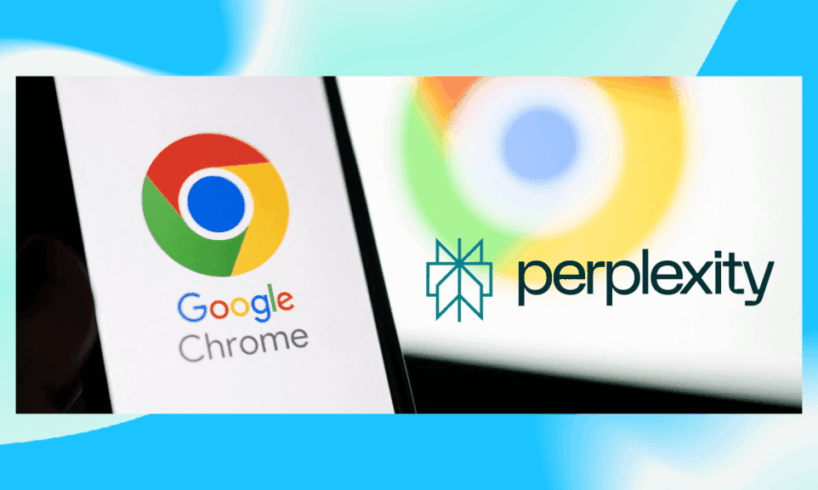
Welcome back to Neural Notes, a weekly column where I look at how AI is affecting Australia. In this edition: Perplexity AI wants to buy Google Chrome for a staggering amount — and why that matters.
AI startup Perplexity has made a $52.9 billion offer to buy Google’s Chrome browser this week. It’s a bold play, and one that comes as US antitrust regulators push for remedies to curb Google’s search dominance.
The bid was sent to Google’s parent company Alphabet on Tuesday overnight, following similar interest from rival OpenAI, as well as Yahoo. It also comes ahead of a ruling from US District Judge Amit Mehta, who could soon require Google to sell Chrome and license search data to competitors.
It also coincided with the Australian Federal Court finding both Google and Apple’s app marketplaces as anti-competitive.
Related Article Block Placeholder
Article ID: 319698
Perplexity’s offer comes with a commitment to invest $4.6 billion into Chrome and Chromium – Google’s open-source browser project – over two years. It has also pledged to hire a large share of Chrome’s existing workforce to maintain continuity, and promised not to make behind-the-scenes changes to how the browser works without user knowledge.
The company says these measures are intended to reassure regulators, advertisers, and users that Chrome would continue to operate as familiar and stable software rather than being abruptly reshaped under new ownership.
Perplexity has even promised that, if successful, it would make no “stealth modifications” to Chrome, pitching the move as continuity and stability for users and advertisers rather than a disruptive overhaul.
Smarter business news. Straight to your inbox.
For startup founders, small businesses and leaders. Build sharper instincts and better strategy by learning from Australia’s smartest business minds. Sign up for free.
By continuing, you agree to our Terms & Conditions and Privacy Policy.
This isn’t the first time Perplexity has gone after a major internet property in the shadow of regulatory pressure. Back in January, it bid to merge with TikTok’s US operations in the face of a potential ban.
Perception, regulation, and competition
While the eye-watering bid is substantial on paper, it’s also a calculated piece of positioning. Perplexity’s valuation is a fraction of Chrome’s potential market worth, meaning the acquisition would only be possible with heavy outside financing.
Announcing it now keeps the startup in global headlines, and ties it directly to the antitrust debate.
Related Article Block Placeholder
Article ID: 318779
Importantly, it also draws attention to the recent launch of Perplexity’s Comet browser, which puts AI search, summarisation, and task automation at the centre of web navigation.
It’s a forward-looking play on a scenario that may never eventuate. Chrome isn’t actually on the market.
Even if Judge Mehta orders Google to divest Chrome, appeals and regulatory reviews could take years. Still, it positions Perplexity as a ready alternative that regulators could point to in pushing for competition.
Why Perplexity’s bid for Google Chrome matters
If you’ve been following this column, you’ll know Perplexity told SmartCompany it is already positioning itself as more than a ChatGPT competitor.
Its Comet browser, launched just a few weeks ago, puts AI at the centre of web navigation, offering instant summaries, contextual assistance, and the ability to automate tasks like managing tabs or booking hotels.
OpenAI also announced its own AI-powered browser built on Chromium, right after Comet was released. It integrates the Operator AI agent directly into how users browse and transact online.
Related Article Block Placeholder
Article ID: 317713
Given that Chrome has a 65% market share in browsing, it would give any buyer enormous reach and influence over just how AI-powered browsing evolves, and how people access the internet.
Owning Chrome could accelerate Perplexity’s shift from being ‘just’ an AI-powered search tool to an everyday utility embedded in people’s online lives.
For publishers, advertisers and small businesses, that could mean fewer direct opportunities for visibility as more queries are resolved within AI ecosystems. It’s why we’re seeing more organisations experiment with GEO (Generative Engine Optimisation) or AEO (Answer Engine Optimisation) strategies. Though it’s still unclear which term will ultimately stick.
With AI summaries and search adoption accelerating, the challenge now is figuring out how to remain discoverable on AI-powered platforms. And the fact that a generative AI startup that barely existed three years ago is making a credible bid for Google’s front door to the internet is a stark reminder of how quickly the landscape is shifting.





